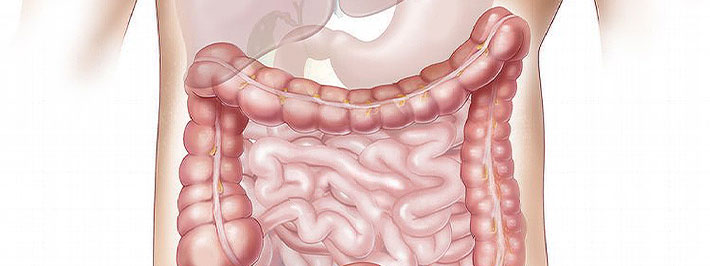
How to naturally treat irritable bowel syndrome?
Irritable bowel syndrome manifests as stomach upset and traffic problems. For better management, it is recommended to combine natural methods with dietary modifications and medications. Update on the most effective natural solutions.
Irritable bowel syndrome is characterized by episodes of constipation that alternate with episodes of diarrhea. It manifests differently in each patient and its origins are still difficult to discern. That is why it is sometimes difficult to treat it. If certain medications help alleviate symptoms, natural methods have also been tried.
Discover 5 natural solutions that help ease the daily life of patients:
Self-massage of the belly to relieve pain.
What's the use
Pains in the lower abdomen are often related to excessive fermentation causing swelling in the colon.
"A self-massage of the abdomen increases the motor skills of the colon and helps the progression of these painful gases, but also the progression of stool," says Dr. Martine Cotinat, gastroenterologist.
How to do it ?
You should follow the path of the colon, with a smooth movement when pressing enough, for example, with two thumbs or with three fingers of one hand, flat. Standing or lying down, try to relax your belly well. Start from the lower abdomen to the right, move your fingers up to below the ribs, then make a transverse downward motion from the ribs to the left, down the left side to the lower abdomen.
As soon as it hurts, we make this move at least four or five times. To make it more comfortable, you can use a few drops of vegetable oil or essential oil.
Opt for peppermint essential oil
What are its benefits?
"Peppermint essential oil has antispasmodic properties, relaxes the muscles of the intestine and colon, and reduces pain. In addition, it is anti-inflammatory and improves digestion," explains Fabienne Millet, pharmacist. Its use is recognized by the World Organization of the Health In 2014, a study review also confirmed its superior efficacy to a placebo in relieving abdominal pain and all symptoms.
How to use ?
Peppermint essential oil is effective around 200 to 250 mg per day, or 2 drops diluted in one teaspoon of vegetable oil, three times a day during meals.
Even better, enteric-coated capsules, prepared by the pharmacist, that release their contents into the intestine. Take one to four days in case of painful spasms.
"Peppermint essential oil is effective, but it should be used with specialist advice because, in large doses, it can promote heartburn," said Dr. Martine Cotinat. It is better to use it diluted 10 to 15%, in massages.
Use osteopathy to relieve digestive discomfort.
What are its benefits?
By restoring harmony between the colon and its neighboring organs, osteopathy can alleviate functional colopathy. The visceral massages it offers help to relieve functional intestinal disorders and improve biliary disorders.
How does it happen ?
Osteopathy starts from the principle that everything comes from circulation: by means of gentle gestures, pressure and slight twists, the professional unties the points of union and tension, so that fluids, blood in particular, circulate better. The improvement is quick. Count one or two pain relief sessions, spaced three weeks to one month.
Probiotics, as background therapy, to restore the intestinal flora.
In the vast majority of patients suffering from colon pain, there is an imbalance of the intestinal flora, with too much or too little bacteria. Therefore, probiotics found in certain foods, such as yogurts, can be beneficial.
"These live microorganisms can help restore balance and alleviate all symptoms." But be careful, in some cases, on the contrary, they can increase the severity of the swelling or pain. Then we must find another solution, "says Dr. Cotinat. Always prefer to consult a health professional before incorporating it into your diet.
How can sophrology be useful?
This relaxation technique allows those who practice it regularly to gradually control the pain associated with this chronic pathology. Its effectiveness has not yet been scientifically proven, but field experience confirms its interest, according to experts. It also works against stress, helps improve self-esteem and can help regulate intestinal motility in case of constipation.
How often should you practice?
Ideally, spend a few minutes each day doing this. It is best to start with a practitioner. Breathing exercises are not for everyone. Count at least five sessionsones to start managing the disease well with this technique.